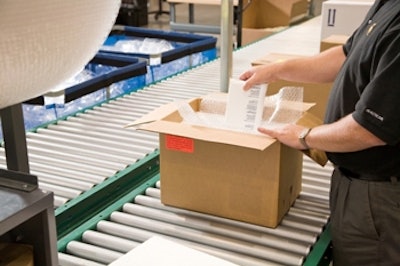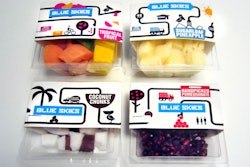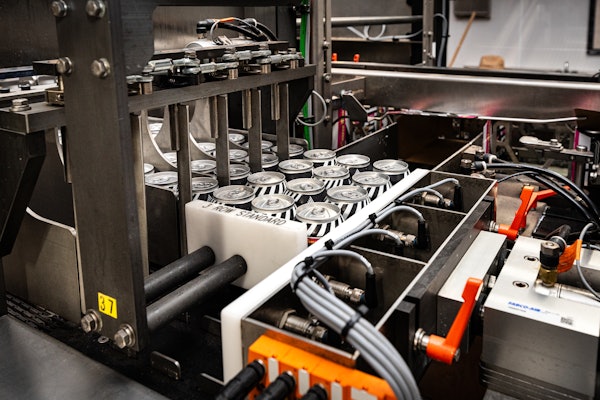When it comes to temperature-sensitive transportation, however, cold chain is only part of the picture. Increasing numbers of healthcare products need to be kept at "controlled room temperature," or CRT. Not long ago, CRT products were considered to be ambient or room temperature and therefore not thought of as needing the same specialized packaging and handling during transportation as "traditional" cold chain products. However, CRT products also require the utmost care and protection in the supply chain.
A key challenge for manufacturers is that there is no defined industry temperature standard for CRT. Few guidelines exist for packaging and protecting CRT products. The Parenteral Drug Assn (PDA) defines CRT as 20° to 25° C. However, many manufacturers have not adopted this definition. The risk in not defining and focusing on CRT is that manufacturers of healthcare products falling in this temperature range could end up leaving them unprotected in the supply chain, leading to spoilage, lost revenue, and potentially negative brand reputation impacts.
The good news is that newer options can better protect CRT products in the supply chain. Below are key tips to consider:
Partner on the front end: It is essential that both your company and your logistics provider understand the requirements of your CRT products and how to best protect them in transport. Solutions in this area are not "one size fits all"--they can be customized according to individual product needs.
Healthcare manufacturers will need to come to the table prepared to share information such as product dimensions and weight, and stability data on how products perform outside of their temperature ranges. It's important to have supportive data in order to develop precise operational plans, especially in a distribution environment where temperatures can vary widely.
Package for the individual product: Packaging is the first line of defense in protecting temperature-sensitive products in the supply chain. There are many options to consider, and determining which one is right for an individual product should be a decision made in partnership with a company's logistics provider. Some of options available today include:
• Thermal blankets: For short-term product protection, thermal blankets can be a simple and cost-effective consideration. There are various blanket styles that will protect products in winter versus summer months and are usually designed to fit over one standard shipment pallet. The key is to purchase blankets made of quality, durable fabric that can withstand multiple uses. For maximum protection, it's also critical to use blankets properly according to the individual shipment needs.
• Passive packaging: A newer option offered by several vendors includes various choices of materials that can help insulate against unwanted external or outer temperatures. Your transportation provider can help you determine which passive packaging choices are best, based on your product's specific needs and transportation requirements.
• Ramp covers: Another option for products that cannot withstand exposure to outside elements are ramp covers. Usually rigid insulated panels placed on top of either a pallet or position on an aircraft, ramp covers are unfolded section by section to provide temporary protection from extreme heat or cold while being tugged to or from a freight facility and an aircraft. The covers protect against temperature extremes that frequently occur on airport ramps. Ramp covers must be custom-designed for particular types of pallets and should not be used for cold chain products, but are good for many CRT products.
Put technology to work. The ability to monitor and track what happens to CRT products--and all other temperature-sensitive products--is essential for ensuring that they are being protected. While packaging is the first line of defense, knowing how the packaging solution is performing throughout the transportation journey is the second.
Plan for action to mitigate risk. Perhaps the single most important element in all temperature-sensitive transportation plans is the ability to intervene when products go off course or outside of their required temperature range. Without the ability to act on information, that data quickly looses value. Design scenario-specific action plans with your carrier and ensure that you have access to back-up resources and infrastructure to implement them quickly.
When it comes to CRT product protection, partnership is essential. With more collaboration on the front end, manufacturers gain customized solutions for their individual product needs, technology support and specific action plans to ensure product protection. Partnering can also mean allowing your logistics provider to manage much of the process for you, taking away layers of complexity.
The bottom line: If you don't have a solid plan in place for protecting CRT products, you might find out too late that your solution was just lukewarm.
Mark Davis is a product manager for UPS's Healthcare Logistics Global Strategy group where he is responsible for developing the company's temperature-sensitive solutions



























